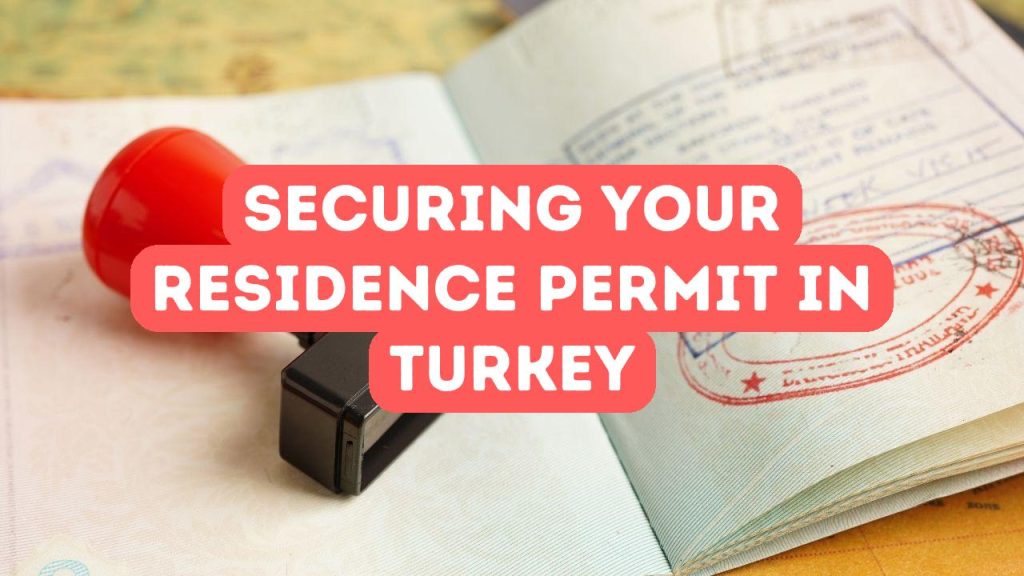Navigating Legal Nuances: Obtaining Dual Residency in Turkey
Navigating the legal nuances of obtaining dual residency in Turkey begins with comprehending the prerequisites set forth by Turkish immigration law. Prospective dual residents must embark on a meticulously structured process that includes the acquisition of a residence permit, which serves as a precursor to long-term residency or citizenship. This requires a careful compilation of documents, ranging from proof of financial stability to health insurance coverage that meets Turkey’s stipulated criteria. Moreover, individuals must also remain vigilant about their native country’s laws regarding dual residency to ensure they do not inadvertently jeopardize their status elsewhere. This initial stage is pivotal as it lays the foundation for a successful application, demanding attention to detail and an understanding of the ever-evolving Turkish legal landscape, which may be influenced by bilateral agreements or changes in domestic policies geared towards foreign nationals.
Upon securing a residence permit, the individual must navigate the intricacies of Turkey’s residency requirements, which mandate not only a physical presence but also a demonstration of ties to the Turkish community. This might involve showing evidence of property ownership, business investments, or familial connections within Turkey. It’s important for applicants to be aware that Turkey operates under a civil law system, which differs from common law systems in certain aspects; for instance, its emphasis on codified statutes over judicial precedents. Such differences can have implications for the recognition and enforcement of legal documents from the applicant’s other country of residence. As the process unfolds, maintaining an open channel of communication with Turkish authorities and seeking expert legal advice becomes imperative to decipher complex regulations and avoid common pitfalls that could delay or derail the dual residency endeavor.
Tackling the fiscal aspect of dual residency is paramount, as it encompasses compliance with Turkey’s tax regulations, which hinge on the notion of tax residency determined by the duration of one’s stay or the center of vital interests. Those holding dual residency must scrupulously report income and assets as required by Turkish law and the conventions to avoid double taxation that may exist between Turkey and their other country of residence. Engaging with a proficient tax consultant who understands the interplay of Turkish and international tax laws is crucial in negating potential financial oversights. With conscientious management, individuals can leverage the benefits of dual residency while upholding their fiscal responsibilities in both nations, ensuring a seamless integration of their transnational existence.
The Economic Benefits of Dual Residency for Expatriates in Turkey
The economic advantages of holding dual residency for expatriates in Turkey are multifaceted, extending from personal financial growth to broader investment opportunities. Expatriates often benefit from the cost of living in Turkey, which is relatively lower compared to many Western countries, allowing their income to stretch further and enhancing their standard of living. In addition to cost savings, the Turkish government offers various incentives for foreign investors, including tax breaks, citizenship by investment programs, and property ownership rights that can lead to a profitable real estate portfolio. This economic climate fosters an environment where dual residents can leverage the purchasing power parity to their advantage, not only by securing assets and investments at an appreciable rate but also by potentially yielding a higher return on investment within Turkey’s burgeoning markets. As a junction between East and West, Turkey also serves as a strategic base for business operations, granting access to an expansive market landscape for entrepreneurial expatriates looking to expand their business horizons.
Beyond individual fiscal perks, dual residency paves the way for expatriates to indulge in Turkey’s dynamic economy, which is characterized by rapid industrial growth and a burgeoning service sector. This scenario is particularly enticing for skilled professionals who can tap into the high demand for expertise in areas such as information technology, construction, and tourism. The government’s commitment to infrastructure and urban development, supported by accessibility to both Asia and Europe, opens doors for international trade and collaboration that are not as readily available in other regions. Moreover, the comprehensive double taxation agreements Turkey has with many countries cushion dual residents from financial pitfalls, enabling them to manage and optimize their tax liabilities more effectively. For those with entrepreneurial zeal, starting a business as a dual resident in Turkey can be remarkably cost-effective, with incentives like reduced startup costs and simplified bureaucratic procedures that are designed to fuel foreign investment and economic integration.
Embracing dual residency also allows individuals to partake in Turkey’s robust real estate market, which aside from providing a potential home base, presents significant investment opportunities given the country’s growing tourism and foreign demand for property. Dual residents, familiar with both local customs and international markets, are uniquely positioned to navigate this sector, utilizing their insight to capitalize on favorable property investment trends and rental income prospects. Such investments not only contribute to personal wealth but also bolster Turkey’s economy, fostering further improvements in infrastructure and services. Moreover, the balance of cost-effective living and the potential for appreciating assets creates an attractive proposition for expatriates aiming to maximize their financial well-being. As dual residents integrate into the fabric of Turkey’s society, they often discover that the economic benefits of their status are just the beginning of enjoying a life rich with cultural exchanges and expansive potential.
Balancing Responsibilities: The Implications of Dual Residency Status in Turkey
Embracing dual residency in Turkey introduces a delicate balancing act between fulfilling the obligations inherent to both countries. Residents must stay astutely aware of the residency stipulations that dictate their legal status, such as the requirement to reside in Turkey for a minimum number of days per year to maintain the validity of their residency permit. Moreover, the specter of double taxation looms for the unwary, necessitating a keen understanding of the bilateral tax treaties that Turkey may have with other nations to protect against fiscal duplicity. This dual allegiance also extends to civic duties, including compulsory military service for dual-national males, which Turkey mandates, potentially complicating one’s commitments abroad. Striking this equilibrium between the responsibilities of dual residency is pivotal not only to ensuring compliance with disparate legal expectations but also to optimizing the benefits that a bicultural life affords.
Diving deeper into the nuances of dual residency, one must also consider the complexities that arise in the realm of financial planning and social security benefits. The convergence of different financial and healthcare systems presents a unique challenge for dual residents. For instance, in managing retirement savings, individuals must navigate the regulations of two potentially conflicting pension schemes. Similarly, healthcare benefits must be adeptly coordinated to ensure seamless coverage without undue expense. Though Turkey offers comprehensive healthcare to residents, understanding how to harmonize this with services from a second country is crucial to avoid gaps in care or double-paying for insurance. As such, proficient navigation through the intricacies of cross-border financial and social security systems is essential for crafting a secure and efficient dual-residential life structure.
Culturally, dual residency in Turkey also demands a refined understanding of social norms and practices to foster integration within local communities. While the country’s rich heritage offers a tapestry of traditions to embrace, it equally requires a dual resident to be adaptable and sensitive to potential cultural clashes. Language proficiency, for instance, can be a significant factor in social inclusivity and accessing full legal rights. Proficiency in Turkish not only eases day-to-day interactions but also deepens connections with the community and understanding of local customs. Awareness of religious observances and holidays, reflecting respect in interpersonal communications, and participating in communal activities can all enhance a dual resident’s experience. Therefore, successfully balancing responsibilities involves not just abiding by legal and financial obligations but also engaging with the cultural heartbeat of Turkey, thereby enriching one’s personal identity and fostering a sense of belonging in a multifaceted world.






